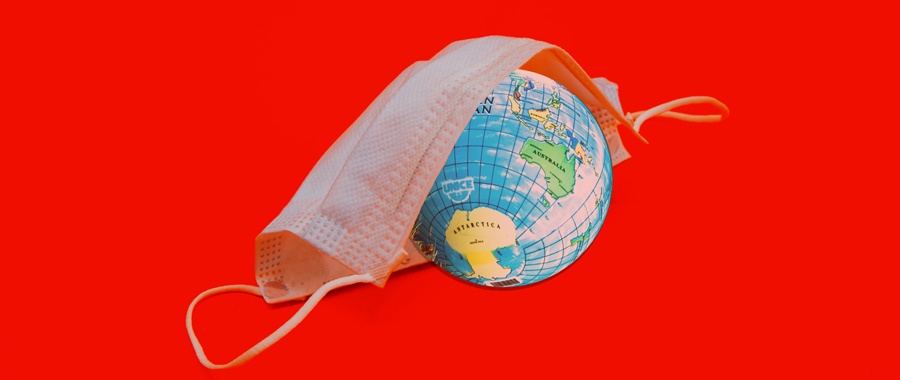In an increasingly interdependent world, the concept of unity transcends mere idealism, evolving into a necessity—especially when it comes to addressing critical global challenges such as pandemics. Within the Bahá’í teachings, the vision of a united world emerges as a foundational principle that raises profound insights into how collective action and global solidarity can stem the tide of widespread health crises. This article explores the interconnection between global unity and the effective management of pandemics, delving into the tenets of Bahá’í philosophy that advocate for a harmonious, collaborative, and just society.
To begin with, the Bahá’í teachings articulate the notion that humanity constitutes a single entity. This principle is pivotal, positing that the fragmentation of society—whether through nationalistic fervor, ethnic divisions, or socioeconomic disparities—illuminates a glaring obstacle in our collective response to pandemics. The holistic understanding of global unity stipulates that the well-being of one is inextricably linked to the well-being of all. Therefore, when faced with a global threat such as a pandemic, the eradication of these divisive barriers becomes not only a moral imperative but also a pragmatic necessity.
A crucial observation derived from this paradigm is the historical ineffectiveness of overly nationalistic approaches to public health crises. In contrast, global collaboration has shown demonstrable success in mitigating the impact of infectious diseases. The Bahá’í texts emphasize that “the earth is but one country, and mankind its citizens.” This assertion highlights the necessity for international cooperation, urging countries to set aside parochial interests and unite in pursuit of common goals—particularly in health and well-being. The COVID-19 pandemic starkly revealed how interconnected our societies are; actions taken in one corner of the world could dramatically influence outcomes in another. This interconnectedness accentuates the imperative for nations to collaborate, share resources, and disseminate knowledge in real-time.
Moreover, the Bahá’í teachings urge the cultivation of an attitude of service toward humanity. This perspective encourages individual actions that contribute to the greater good, a principle that is paramount during times of crisis. Acts of solidarity, such as the sharing of medical supplies, expertise, and vaccination resources, exemplify how a unified response can mitigate the adverse effects of a pandemic. It is through the lens of selfless service that communities can forge stronger bonds, transcending minute differences and focusing on shared human dignity. Such an ethos, if adopted globally, could effectively create a reservoir of goodwill, fostering rapid response mechanisms that would bolster public health infrastructure and preparedness.
Governance also plays a crucial role in embodying the principles of Bahá’í unity in confronting pandemics. The teachings emphasize the necessity for systems of governance that reflect transparency, justice, and accountability. Governments must prioritize public health over political agendas and harness a unified approach to health governance. This not only includes the establishment of robust healthcare systems but also mandates collaboration amongst nations to create and enforce global health policies that are equitable and just. A concerted effort to establish unified guidelines for vaccine distribution, disease surveillance, and research funding could significantly curtail the spread of infectious diseases.
Another dimension of the Bahá’í philosophy relevant to pandemic response is the emphasis on education and capacity building. Empowering individuals with knowledge about health, hygiene, and preventive measures creates resilient communities capable of protecting themselves and others. Investment in global education systems that prioritize health literacy bolsters collective immunity against misinformation, a common issue during health crises. By nurturing an informed populace that understands public health measures, the foundation for a more resilient world emerges—one that acts preemptively rather than reactively when faced with pandemics.
The spiritual aspect of Bahá’í teachings also plays an integral role in promoting global unity. Recognizing the inherent value of every individual as a reflection of the divine fosters a sense of universal brotherhood. This transcendental belief system encourages empathy, reconciliation, and mutual understanding, crucial attributes when addressing global health crises that tend to incite fear and division. A collective spiritual awakening could engender a robust ground for alliances aimed at global health and well-being, urging humanity to rise above sectarian divides and rally toward a singular purpose.
Furthermore, the impact of economic justice cannot be overlooked in discussions surrounding global unity and pandemic response. Economically disadvantaged nations often bear the brunt of health crises due to limited resources and infrastructure. Bahá’í teachings advocate for economic equity, positing that a more just allocation of global resources could significantly enhance the ability of nations to respond effectively to health crises. A global commitment to equitable financial support and development aid could empower all nations to build resilient healthcare systems and improve overall public health, thus minimizing the susceptibility to future pandemics.
In conclusion, the teachings of the Bahá’í Faith present a compelling argument for the transformative power of global unity in the context of pandemic response. By fostering a sense of interconnectedness, promoting service to humanity, insisting upon transparent governance, prioritizing health education, cultivating spiritual awareness, and ensuring economic justice, societies can better equip themselves to confront the challenges posed by future pandemics. A united world stands not merely as an aspiration but as a necessity for the survival and flourishing of humankind. Embracing this vision of unity may well lead to a more equitable, harmonious, and health-conscious society, capable of navigating the tumultuous waters of global health crises with resilience and compassion.
